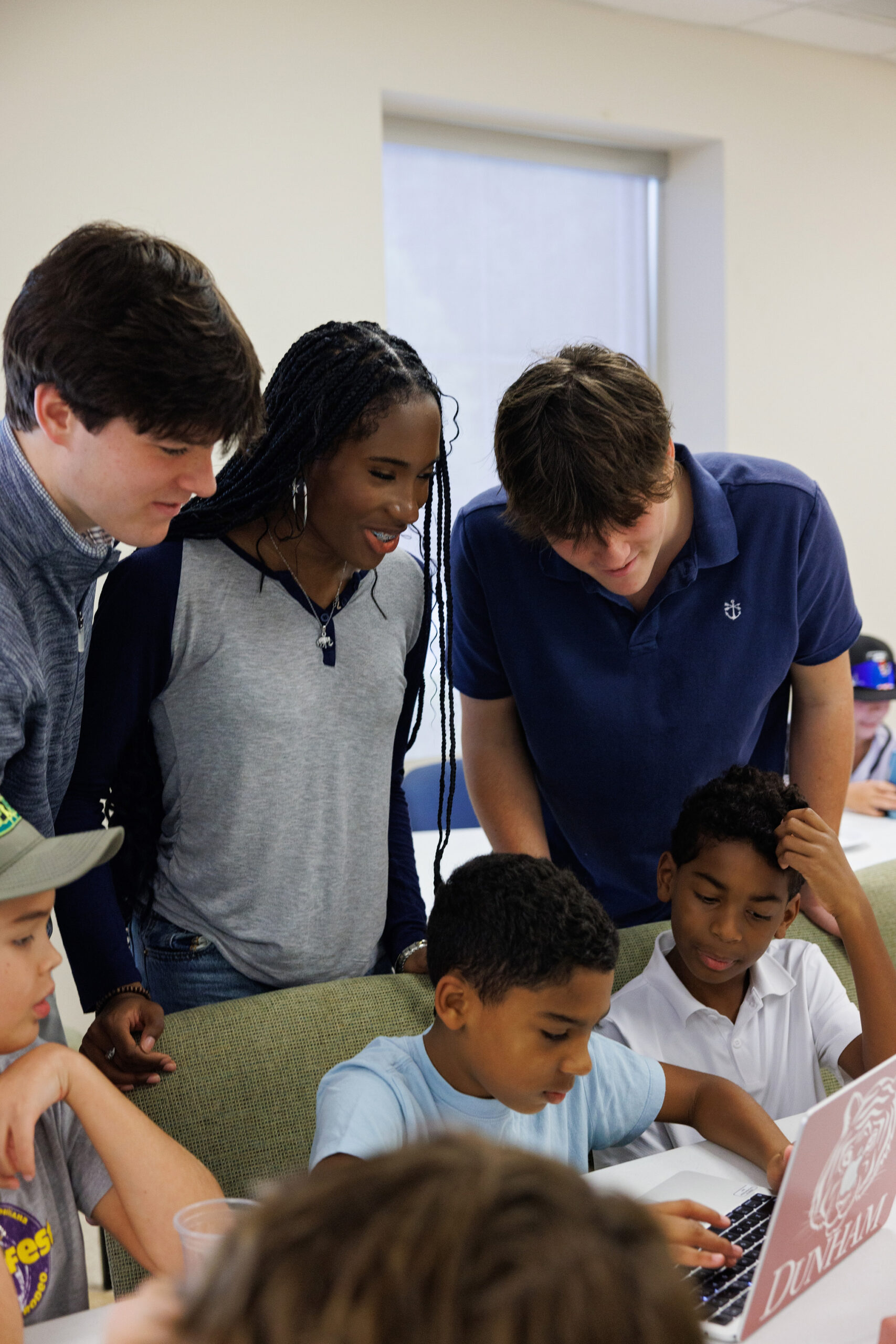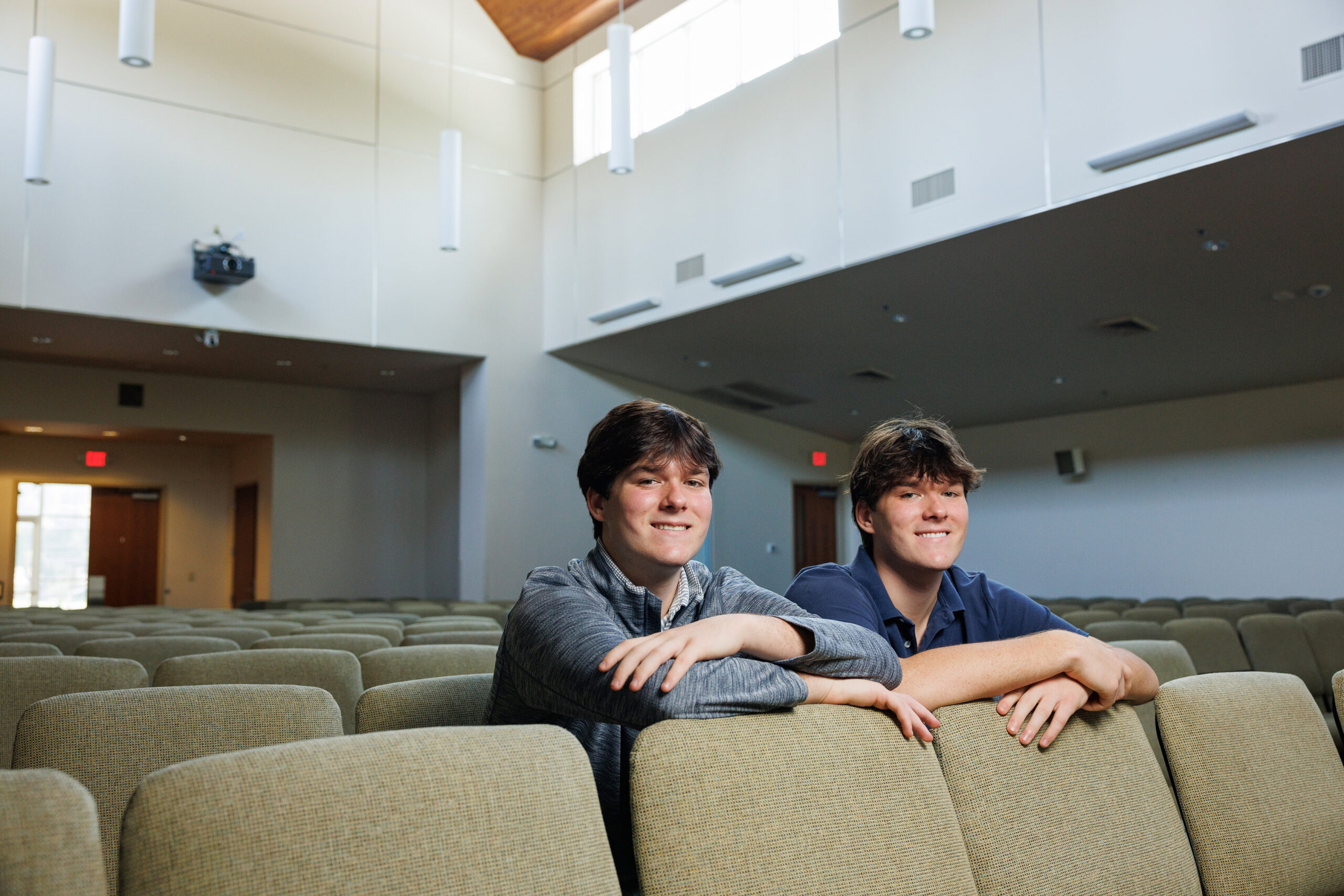Nearly three millennia after the fabled founding of Rome on the Tiber River by legendary twins Romulus and Remus, twin Dunham School seniors are teaching Latin along the Mississippi.
“Castor and Pollux, Amphion and Zethus—my dad and grandparents would read me those stories,” says Richard Harrod, listing the mythological twins that sparked his and his brother George Harrod’s interest as children.
When George engaged with the Latin language and classical mythology in middle school, their modern-day relevance was revealed to him through the ample references found in Mardi Gras customs, from the Krewe of Bacchus in New Orleans, named after the Roman god of wine, to the origins of the word “Carnival,” which comes from “carne levare”—late Latin for “remove meat.”
|
|
|
“You’re never going to experience that much ancient history in one place just celebrated in a modern aspect,” he says.
The Harrods lead an elementary and middle-level Latin class, “Aequora: Teaching Literacy with Latin,” through The Paideia Institute. They use modern familiarity with Latin as a starting point for beginner students. George’s favorite example of a well-known allusion that fosters the class’ interest is the late-night crime fighter Batman’s name.
“I like to teach the word for night, so nox noctis,” he explains. “And, that sounds like nocturnal, which, hence, is a bat.”

They utilize competitions and entertainment to draw in attendees at their after-school lessons, held at South Baton Rouge Presbyterian Church and The Dunham School, while building a foundation they say strongly impacts students’ academic performances.
“From my personal experience,” Richard says, “learning the Latin prefixes and suffixes helps insurmountably on things like the ACT or the SAT, or even just critical reading in your typical language classes.”
A Latin education has molded the trajectory of both Harrods’ academic careers. Richard, who is currently translating Greek author Pindar’s writings into English, is applying for a major in classical studies to research Greek and Latin prose. George hopes to deploy his knowledge of the ancient world “to help relieve economic issues of our time.”
|
|
|
As the Harrods, along with local Aequora co-founder Jordyn Robvais, approach high school graduation, they hope to inspire other teens to learn and teach Latin in their places to continue the program and open more space for new students looking to level up their education.
“Seeing the profound effects on students’ literacy as a result of these fun Latin meetings,” Richard says, “that’s been the most meaningful part of the entire experience.”
This article was originally published in the October 2024 issue of 225 Magazine.





